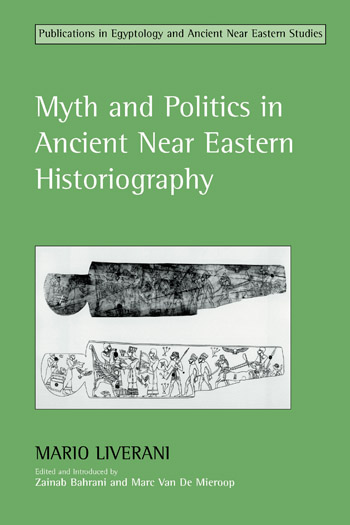Myth and Politics in Ancient Near Eastern Historiography

ID: 1489 - View Book Page - Edit In OJS
The essays collected in this volume represent a selection of studies, previously published mainly in Italian, that make explicit use of anthropological and semiological tools in order to analyze important texts of historical nature from various regions of the Ancient Near East. They suggest that these historiographical texts were of a ‘true’ historical nature, and that the literary forms and mental models employed were very apt at accomplishing the intended results. Two different aspects are especially emphasized: myth and politics.
Published: Aug 1, 2004
Series
| Section | Chapter | Authors |
|---|---|---|
| Prelims | ||
| Editor's Introduction | Zainab Bahrani, Marc Van De Mieroop | |
| Acknowledgements | Mario Liverani | |
| Abbreviations | Mario Liverani | |
| PART ONE: MESOPOTAMIA | ||
| 1. Adapa, guest of the gods | Mario Liverani | |
| PART TWO: HITTITE ANATOLIA | ||
| 2. Telipinu, or: on solidarity | Mario Liverani | |
| 3. Shunashura, or: on reciprocity | Mario Liverani | |
| PART FOUR: HEBREW BIBLE | ||
| 7. The story of Joash | Mario Liverani | |
| 8. Messages, women, and hospitality: Inter-tribal communication in Judges 19–21 | Mario Liverani | |
| PART THREE: SYRIA | ||
| 4. Leaving by chariot for the desert | Mario Liverani | |
| 5. Rib-Adda, righteous sufferer | Mario Liverani | |
| 6. Aziru, servant of two masters | Mario Liverani | |
| Bibliography | ||
| Bibliography | Mario Liverani | |
| Index | ||
| Index | Mario Liverani | |
Related Books
Reviews